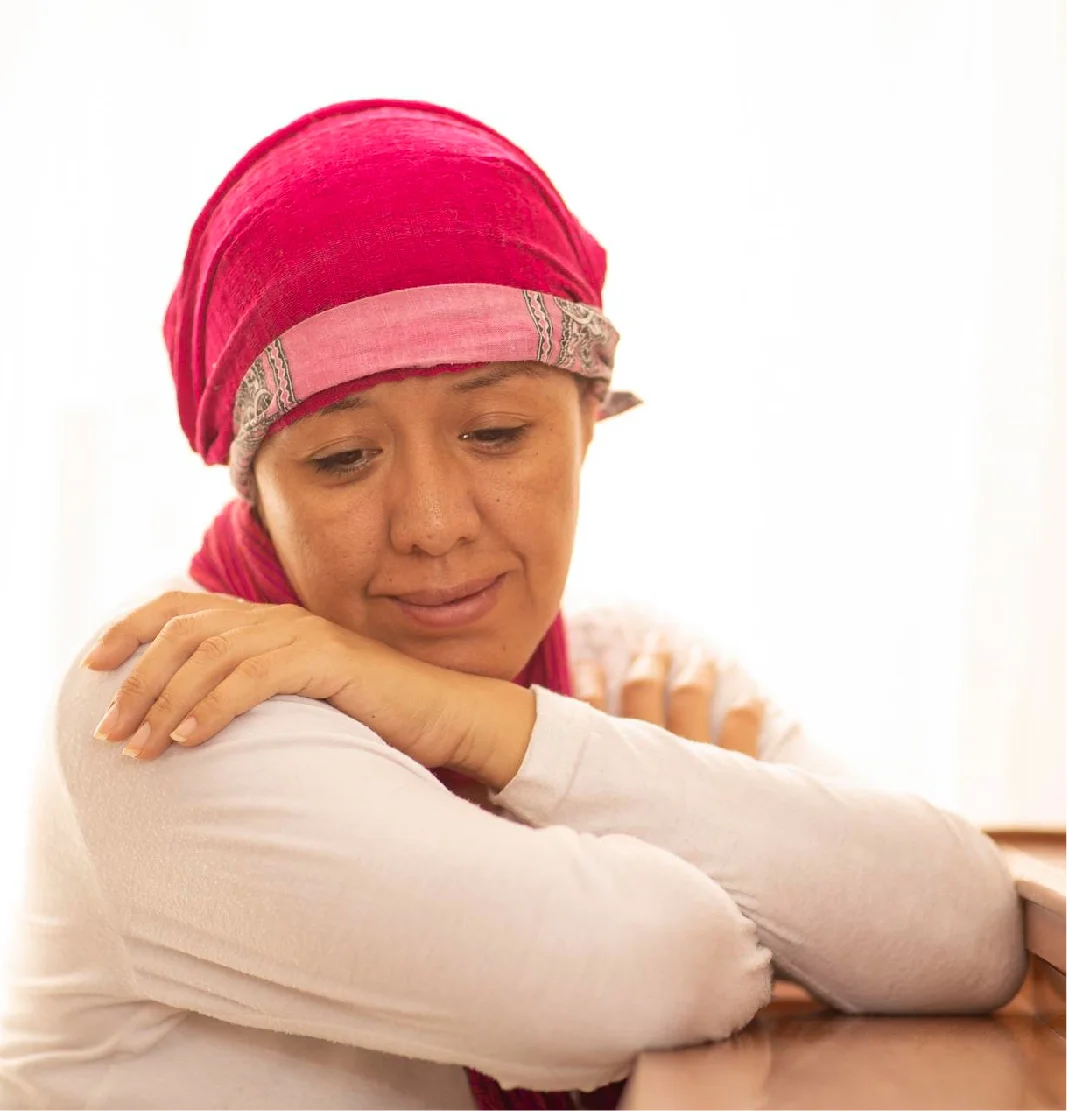 at BMCHRC.webp)
Welcome to Bhagwan Mahaveer Cancer Hospital & Research Centre (BMCHRC), a beacon of hope and healing for individuals confronting Acute Myeloid Leukemia (AML). Our institution stands as a pillar of comprehensive care, where cutting-edge treatments merge with compassionate support to guide patients towards optimal health outcomes.
Welcome to Bhagwan Mahaveer Cancer Hospital & Research Centre (BMCHRC) - Acute Myeloid Leukemia (AML) Information Center

Acute Myeloid Leukemia (AML) is a type of blood cancer characterized by the rapid growth of abnormal myeloid cells in the bone marrow. These abnormal cells interfere with the production of normal blood cells, leading to symptoms such as fatigue, easy bruising or bleeding, fever, and an increased risk of infections. AML can progress rapidly if not treated promptly, making early diagnosis and intervention crucial for successful outcomes.

While the exact cause of AML is not fully understood, certain risk factors may increase the likelihood of developing the disease. These include exposure to ionizing radiation, certain chemicals such as benzene, previous chemotherapy or radiation therapy for other cancers, certain genetic disorders like Down syndrome, and a history of myelodysplastic syndromes (pre-leukemia).

The signs and symptoms of AML can vary from person to person but often include fatigue, weakness, shortness of breath, pale skin, easy bruising or bleeding, frequent infections, fever, and swollen lymph nodes. Since these symptoms can be indicative of various other medical conditions, prompt medical evaluation is essential for accurate diagnosis.

Diagnosing AML typically involves a combination of blood tests, bone marrow aspiration and biopsy, and imaging studies. Blood tests can reveal abnormal levels of blood cells, while bone marrow aspiration and biopsy allow for the examination of the bone marrow to identify leukemia cells. Imaging studies such as X-rays, CT scans, or MRIs may be used to assess the extent of the disease.
Meet our esteemed team of medical professionals, each equipped with years of specialized expertise and unwavering dedication to patient care.
Request a callback from our healthcare specialist
Acute Myeloid Leukemia (AML) can develop due to genetic mutations or exposure to certain risk factors like ionizing radiation, certain chemicals, previous Chemotherapy or Radiation Therapy, Genetic Disorders such as Down syndrome, and myelodysplastic syndromes (pre-leukemia). Individuals with a family history of leukemia or those with certain genetic predispositions may also be at higher risk.
Common symptoms of AML include Fatigue due to Anemia, shortness of Breath, Pale Skin, easy bruising or bleeding, frequent infections due to Low White Blood Cell counts, Fever, and Swollen Lymph Nodes. However, symptoms can vary depending on the individual and the stage of the disease.
AML is diagnosed through a series of tests including blood tests to evaluate Blood Cell counts and Morphology, Bone Marrow aspiration and Biopsy to examine the Bone Marrow for Leukemia cells, and imaging studies such as X-Rays, CT Scans, or MRIs to assess the extent of the disease.
Treatment for AML typically involves induction chemotherapy to achieve remission, followed by consolidation therapy to prevent relapse. Stem Cell Transplantation may be recommended for certain patients. Other treatment options include Targeted Therapy, which attacks specific Leukemia Cells, and Immunotherapy, which helps the immune system fight cancer cells.
AML patients receive comprehensive supportive care to manage symptoms and side effects of treatment. This may include blood transfusions to manage low blood cell counts, antibiotics to prevent or treat infections, medications to manage pain and nausea, nutritional support, and psychological counseling to address emotional needs.
Yes, recurrence of AML is possible even after achieving remission. Regular follow-up appointments and ongoing monitoring are essential to detect any signs of relapse early and provide timely intervention.
AML patients are encouraged to adopt a healthy lifestyle including regular exercise, balanced nutrition, staying hydrated, and avoiding tobacco and excessive alcohol consumption. It's also essential to follow medical advice regarding activity levels and dietary restrictions during treatment.
The prognosis for AML varies depending on factors such as age, overall health, subtype of AML, genetic mutations, and response to treatment. Early diagnosis and appropriate treatment can significantly impact outcomes, with some patients achieving long-term remission.
Patients can schedule an appointment with our experienced oncology team at BMCHRC for a comprehensive evaluation, diagnosis, and personalized treatment plan. Our multidisciplinary approach ensures that patients receive the best possible care tailored to their individual needs.
AML treatment may cause various side effects including Nausea, Vomiting, Diarrhea, Hair Loss, Fatigue, increased risk of infections due to low White Blood Cell counts, and bleeding or bruising due to low platelet counts. Your healthcare team will monitor and manage these side effects to ensure your comfort and well-being.
Yes, Genetic testing plays a crucial role in AML management. Identifying specific genetic mutations or abnormalities in leukemia cells can help Oncologists determine prognosis, select targeted therapies, and assess eligibility for Clinical Trials. Results from genetic testing provide valuable information that guides treatment decisions and improves outcomes for AML patients.
Stem Cell Transplantation, also known as Hematopoietic Stem Cell Transplantation (HSCT), may be recommended for AML patients who are at high risk of relapse or have achieved remission but have a high likelihood of disease recurrence. The procedure involves replacing diseased bone marrow with healthy stem cells from a compatible donor, allowing for the regeneration of a healthy blood and immune system. HSCT can offer the possibility of long-term remission or cure for some AML patients.
Yes, there is extensive ongoing research and clinical trials focused on advancing treatment options for AML. These studies explore novel therapies, targeted agents, immunotherapies, and combination approaches to improve outcomes and reduce treatment-related toxicity. Participation in clinical trials offers eligible AML patients access to cutting-edge treatments and contributes to the advancement of medical knowledge in the field of leukemia treatment.
AML and its treatment can have long-term effects on patients' health and well-being. These may include increased risk of secondary Cancers, Cardiac complications, Infertility, Cognitive impairment, and Psychological distress. Regular follow-up care and survivorship programs are essential for monitoring and managing these potential long-term effects, promoting overall health, and enhancing quality of life for AML survivors.
Supporting a loved one with AML involves offering emotional support, practical assistance with daily tasks, and accompanying them to medical appointments. Listen attentively to their concerns, provide encouragement, and advocate for their needs within the healthcare system. Educate yourself about AML and its treatment options to facilitate informed discussions and decision-making. Additionally, consider joining support groups or seeking counseling to cope with the emotional challenges associated with a cancer diagnosis.